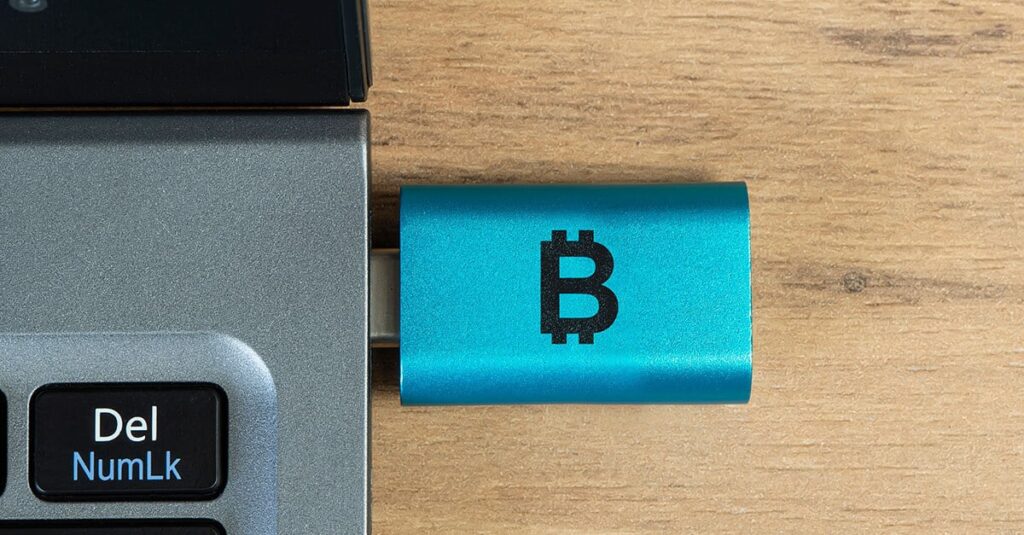
Secure Your BTC: The Essential Bitcoin Self-Custody FAQ
In the realm of cryptocurrency, complete control over one’s assets is the hallmark that distinguishes this digital frontier from traditional finance.
Bitcoin self-custody is at the heart of this control, granting individuals the ability to truly own their financial assets without the intervention of third parties.
As the landscape of cryptocurrency evolves, the practice of self-custody has become a topic of keen interest and paramount importance for both seasoned crypto enthusiasts and newcomers alike.
Our Bitcoin Self-Custody FAQ aims to demystify the concept of self-custody, providing clear answers to common questions, and guiding you on a path of enlightened financial independence in the Bitcoin ecosystem.
Through this FAQ, we endeavor to equip you with the knowledge and confidence needed to take charge of your digital assets in a secure and informed manner.
1. What is Bitcoin self-custody?
Bitcoin self-custody refers to the practice of holding the private keys to your Bitcoin, as opposed to entrusting them to a third-party like a cryptocurrency exchange. This practice allows you full control and ownership over your Bitcoin.
2. Why is self-custody important?
Self-custody ensures that you have complete control over your Bitcoin without the involvement of intermediaries. This reduces the risks associated with hacks, fraud, or mismanagement by third parties.
3. How do I self-custody my Bitcoin?
To self-custody your Bitcoin, you’ll need a private wallet where you can store your private keys. There are various types of wallets including hardware wallets, paper wallets, and software wallets. Each has its own set of advantages and considerations.
4. What are the risks associated with self-custody?
While self-custody reduces risks associated with third parties, it does place the responsibility of security solely on you. Losing access to your private keys or falling victim to phishing scams could result in loss of your Bitcoin.
5. What are the advantages of self-custody over keeping my Bitcoin on an exchange?
Self-custody provides higher security against hacks and unauthorized access, full control over your funds, privacy, and freedom from third-party policies, fees, or potential insolvencies.
6. Are there any reputable platforms to buy Bitcoin for self-custody?
Yes, platforms like Xcoins allow you to buy Bitcoin and transfer it directly to your self-custody wallet, ensuring that you maintain control of your cryptocurrency from the outset.
7. How can I learn more about self-custody?
There are many resources available online, including guides, forums, and community discussions on platforms like Reddit or Bitcoin-focused websites. It’s crucial to educate yourself thoroughly to ensure secure self-custody of your Bitcoin.
8. Is self-custody suitable for everyone?
Self-custody may be more suitable for individuals with a strong understanding of cryptocurrency and digital security. If you’re new to cryptocurrency, take the time to educate yourself and consider seeking advice from trusted sources or professionals.
Self-custody is the future of Bitcoin
The significance of self-custody cannot be overstated. It embodies the very essence of financial autonomy and security that Bitcoin promises. By taking the helm of your own digital assets, you’re not only stepping into a new realm of financial responsibility but also advancing the ethos of decentralization that underpins blockchain technology.
However, with great power comes great responsibility. The journey of self-custody necessitates a robust understanding of digital security measures and the inherent risks involved. It’s a proactive approach towards safeguarding your financial future in the digital realm, yet it requires a keen awareness and continuous learning to navigate the potential pitfalls effectively.
The world of cryptocurrency is still in its nascent stage, and the practice of self-custody is one of the many facets that will evolve with time. As we continue to explore and adopt better security practices, the ease and safety of self-custodying assets are bound to improve.
Platforms like Xcoins, that facilitate direct purchases of Bitcoin into self-custody wallets, are already paving the way for a more user-friendly self-custody experience.
This Bitcoin Self-Custody FAQ is a stepping stone towards a broader understanding and appreciation of self-custody. By embracing self-custody, we are not only taking charge of our financial destiny but also contributing to a more open, decentralized, and empowering financial ecosystem. As you delve deeper into the realms of Bitcoin and blockchain technology, may your journey towards self-custody be an enlightening and empowering one.
As always, this article does not constitute financial advice. You should be sure to do your own research and consult a professional financial advisor before making a major investment decision.
To stay up to date on all things crypto, like Xcoins on Facebook, and follow us on Twitter, Instagram, and LinkedIn.

